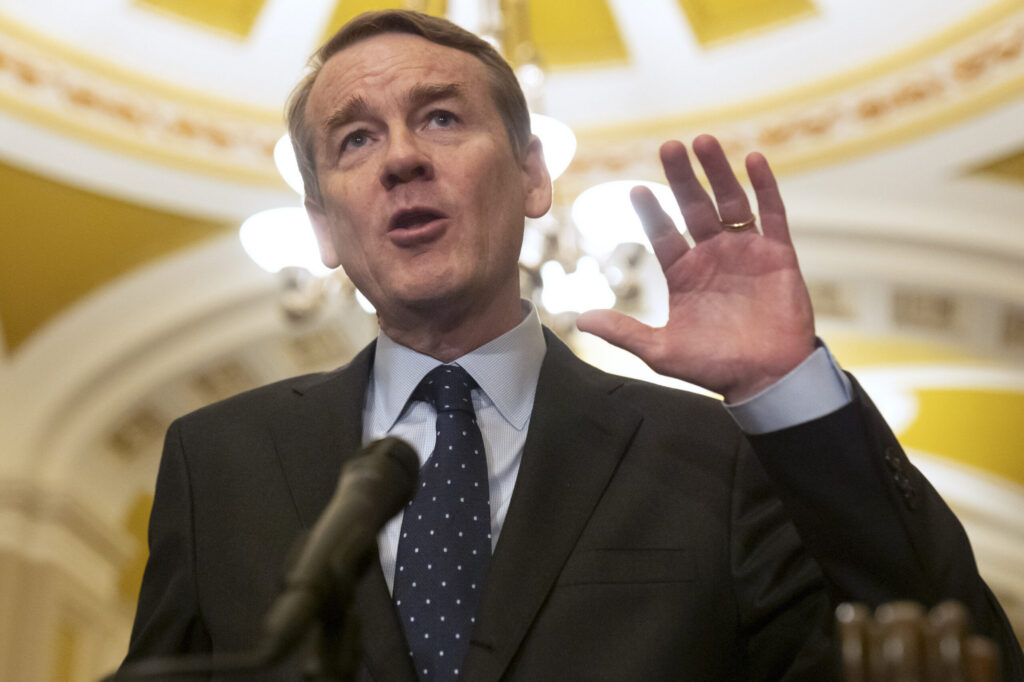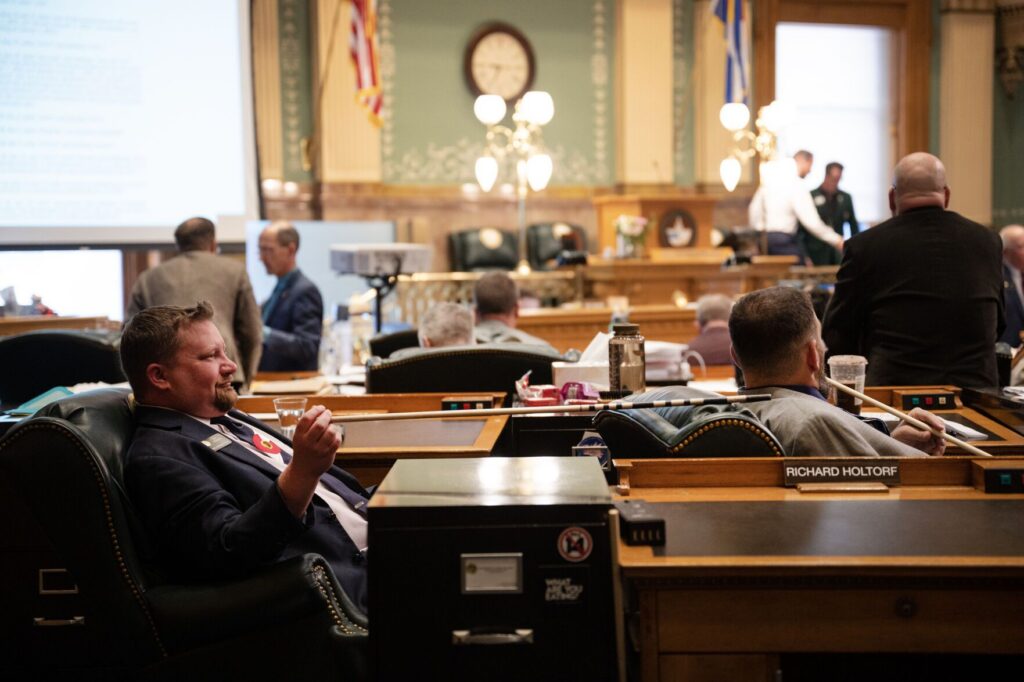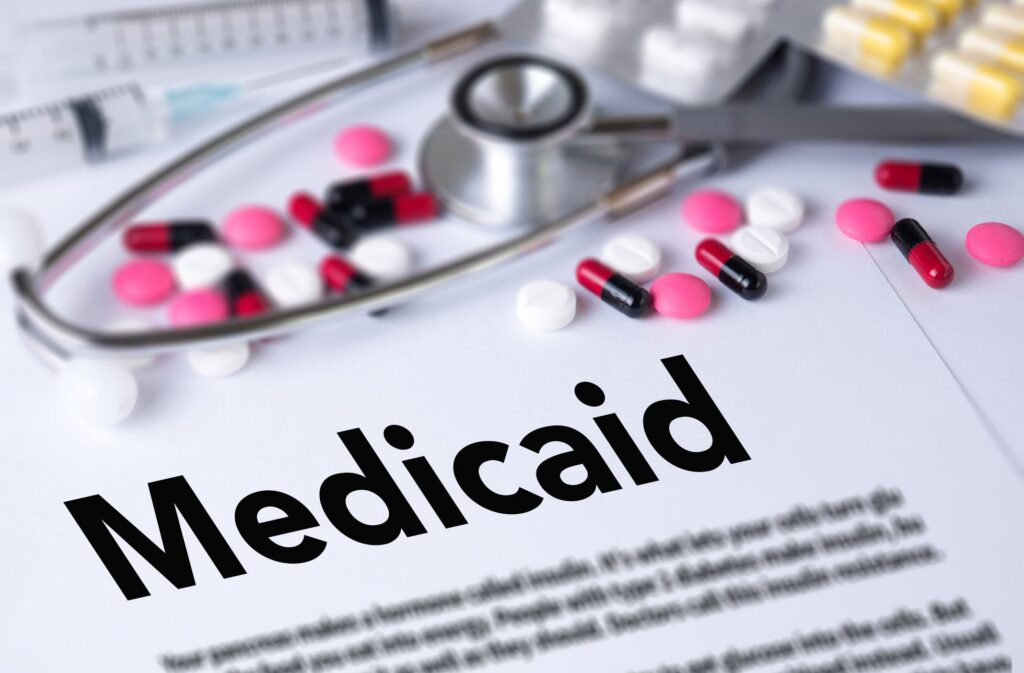Denver, Adams, Arapahoe counties to end mask orders as metro reaches ‘pivot point’ in pandemic

The indoor mask orders in Denver, Adams and Arapahoe counties will end later this week as the metro area and its hospitals emerge from the omicron wave and into what Denver’s leaders called a new phase of pandemic management.
Denver’s order was set to expire at midnight Friday, and the city will not extend it because of falling omicron cases and improved hospital capacity, Mayor Michael Hancock said at a news conference Monday. The mandate was first instituted just before Thanksgiving, when pandemic modeling indicated hospitals were at risk of being overwhelmed.
Hours later, Tri-County Health’s board voted 5-1 to end both its indoor and school mask orders, beginning Saturday. Schools have been required to be masked in Adams and Arapahoe counties for months via an order that sparked political infighting and the coming dissolution of Tri-County as it exists today.
The changes in the metro come as cases drop steadily and hospital capacity improves. They signal not just a shift away from the back-to-back surges brought by the omicron and delta variants over the past several months, but from how the area has handled the novel coronavirus in its first two years of existence. Hancock, touting an end to masking requirements and capacity limits going forward, said Denver would use a “more targeted and methodical approach” to outbreaks that will limit the impact on the broader population.
“We’re at a very important pivot point in this battle,” he said, praising Denverites’ high vaccination rate. “We’re in a much better position than other parts of the country to do this now. … This is a new phase in our response to the pandemic, and we must be diligent as ever to maintain our progress.”
Denver’s face-covering order was initially set to expire on Jan. 4, but the omicron surge delayed that a month. Tri-County’s order was tied to hospital capacity, though improved case data gave officials there enough confidence to move ahead of the order’s specific metrics.
The new variant brought unprecedented case and positivity rates to Denver and Colorado, but officials have said for weeks that its rapid rate of spread meant that it would likely subside quickly, too. Cases statewide peaked in mid-January and have been falling steadily since; hospitalizations, which also spiked, have also begun to topple.
“Omicron has run out of fuel within our community,” Bob McDonald, the executive director of the city’s Department of Public Health and Environment, told reporters Monday. “It’s safe now to lift our face coverings.”
Elsewhere on Monday afternoon, Larimer County Public Health announced that it, too, will end its county’s face-covering order, which has been in place since October; the order will expire Feb. 12. Larimer County and its hospitals were hit particularly hard by the delta variant.
“While the use of face masks in crowded indoor settings has been an important mitigation measure over the past two years,” Tom Gonzales, the director of the county’s health department, said in a statement, “I believe it is the right time to end the requirements based on the positive trends we’re seeing with the Omicron variant.”
While Tri-County is dissolving its school-based order, Denver will continue requiring face masks in schools and child care settings for the time being. McDonald indicated discussions are ongoing about those requirements, as well, but that state policy around quarantines makes it advantageous to keep students masked, to help keep students in class should they be exposed in school. He also noted that the youngest children – those under the age of 5 – can still not be vaccinated.
“There are state-level policies that indicate if there is an outbreak in a school setting, under current guidelines from the state, we could have large groups of kids quarantined,” he said. ” … We’re going to look at data, we’re going to talk to our regional partners and our school partners and our state-level partners. We’re going to make the right decision when it’s the right time.”
Masks are still required at Denver International Airport and on public transportation. Businesses can continue requiring masks or proof of vaccination, Hancock said, and he asked the public to be kind and follow those rules. Other counties in the metro area – including Jefferson and Boulder – still have face-covering requirements in place.
McDonald said new modeling indicates that ending the mask mandate will have little impact on Denver’s emergence from the omicron wave. He called the decision “very thoughtful,” and he said that though there remains the potential for new variants to emerge in the coming months, he felt the decision to end the mandate was not premature.
“Two months ago, it was very clear that the modeling indicated that if we did not do something to reduce transmission, then hospital capacity would be breached in mid- to late December, and that did not happen,” McDonald said. “That did not happen. Our face-covering order was absolutely successful.”
Hancock and McDonald said the city was reaching a point of managing the pandemic on a “programatic” basis, as opposed to issuing sweeping mandates that have been commonplace but are increasingly controversial. McDonald said that programatic approach would include continuing to emphasize boosters and vaccinations; the use of pharmaceuticals – like antiviral drugs – to treat the unvaccinated; and supporting hospital systems.
Still, both officials said they would continue to follow the data moving forward, and they did not close the door on needing other restrictions at some point in the future, should another variant emerge or should cases spike on a population-wide level.
“I think it’s clear that the mayor and the administration will do what we need to do to protect the citizens of Denver,” McDonald said of any public health measures being taken in the future. “My hope is we don’t have to go back to mandates in the fall and we can manage this with some of those more programatic tools.”
With omicron peaking in Colorado and elsewhere, the conversation has quickly become if the disease is becoming endemic – meaning present and particularly risky for the unvaccinated but not as sweeping as it was for much of the last two years. McDonald said there was no singular point or moment when the virus would become endemic.
But he said omicron’s profile – more infectious, less severe – seemed to indicate it was moving into the realm of other coronaviruses, like the common cold, in terms of its future impact and presence in society.
Statewide, modeling from a team of researchers indicates that as much as 80% of Coloradans will be immune to omicron – which accounts for nearly every COVID-19 case in the state – by mid-February. Assuming another, similarly disruptive variant doesn’t emerge anytime in the near future, that should mean a period of relative COVID calm that could last into the summer months, the researchers wrote.
But the virus has shown throughout the past two years that predicting its movements and evolution is frustratingly difficult. Hancock said he wasn’t going to try to project when the pandemic will end.
“I would never guess, not with this virus,” he said of the future. “Nothing suggests to me that we will do anything good trying to guess to the public when we’re done with this.”














